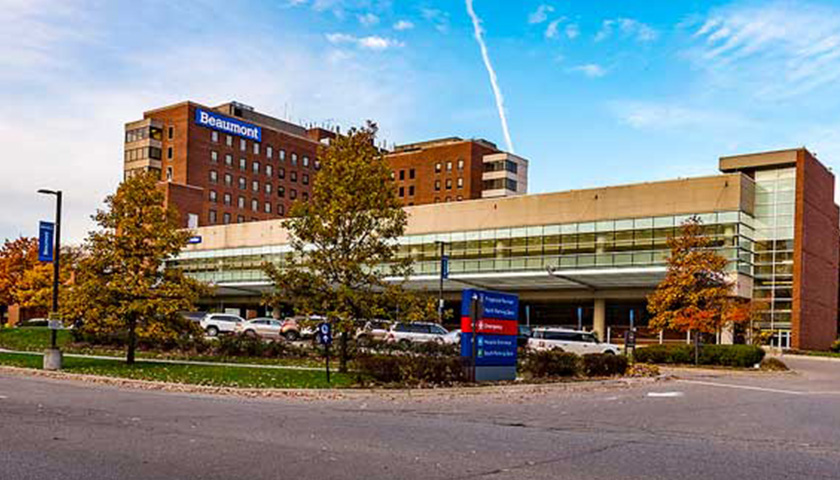by Bruce Walker
Respiratory syncytial virus cases in Michigan may have peaked, according to state health experts.
However, they also warn hospitals continue to experience pediatric bed shortages and advise parents to seek initial care for their children at urgent care facilities or primary care doctors before resorting to emergency room visits.
The Michigan Health and Hospital Association and Michigan Department of Health and Human Services cite data from the U.S. Department of Health and Human Services report, which says 76% of pediatric beds nationwide are occupied by patients with RSV infections.
“In recent weeks we have seen a significant surge in cases of RSV which is most greatly impacting our infants and young children,” Dr. Rudolph Valentini, chief medical officer at Children’s Hospital of Michigan, said in a statement.
Valentini said more than 450 patients have been admitted for RSV since Oct. 1.
“This is putting a strain on our hospital’s Emergency Department and inpatient bed capacity; further, this could intensify if influenza cases begin to rise in the near future,” he said.
“It is also important to note that RSV and its associated bronchiolitis cause symptomatic disease in 20% of infants and children less than 1 year of age,” Valentini continued. “Although RSV may only cause a mild cold in older children and adults, it is important for parents to keep their infants and young children away from others who are ill, because RSV causes inflammation to the smallest airways making infants especially vulnerable sometimes resulting in hospitalization or ICU care. Other patients who need to avoid RSV are children with a history of prematurity, chronic lung disease, congenital heart disease, immunodeficiency or solid organ transplant.”
Laura Appel, MHA executive vice president of Government Relations and Public Policy, explained in an email to The Center Square why RSV cases have spiked in 2022.
“Health experts have noted RSV is more prevalent this season for a few reasons, one of those being that we’ve scaled back on pandemic interventions that not only slowed the spread of COVID-19, but also other respiratory illnesses like RSV and the flu,” Appel said.
“It’s important to note that even where hospitalizations have receded, many of our members continue to face severe space and staffing challenges which significantly impacts how they’re able to deliver care. By taking the steps necessary to slow the slow the spread of respiratory illness, Michiganders are supporting our hospitals and health systems who either currently have limited bed availability or are at risk of being overwhelmed by cases of RSV, adenovirus, flu and even COVID in the coming weeks and months.”
Lynn Sutfin, spokeswoman for the state Health Department, acknowledged “a sustained increase in pediatric emergency room visits, largely due to respiratory illness” in an email to The Center Square, and offered advice on how to stop the spread of RSV and other respiratory illnesses.
“We are urging all Michigan families to take steps to prevent the spread of respiratory illnesses,” Sutfin said. “This includes staying home if you are unwell and avoiding contact with individuals at risk of severe RSV illness; washing your hands often; covering coughs and sneezes; cleaning and disinfecting of surfaces; getting vaccinated for influenza and COVID-19; having a supply of COVID-19 tests and masks at home; and finding out if you are eligible for treatment options if you do become unwell.”
– – –
Bruce Walker is a regional editor at The Center Square. He previously worked as editor at the Mackinac Center for Public Policy’s MichiganScience magazine and The Heartland Institute’s InfoTech & Telecom News.
Photo “Beaumont Hospital” by Beaumont Health.





